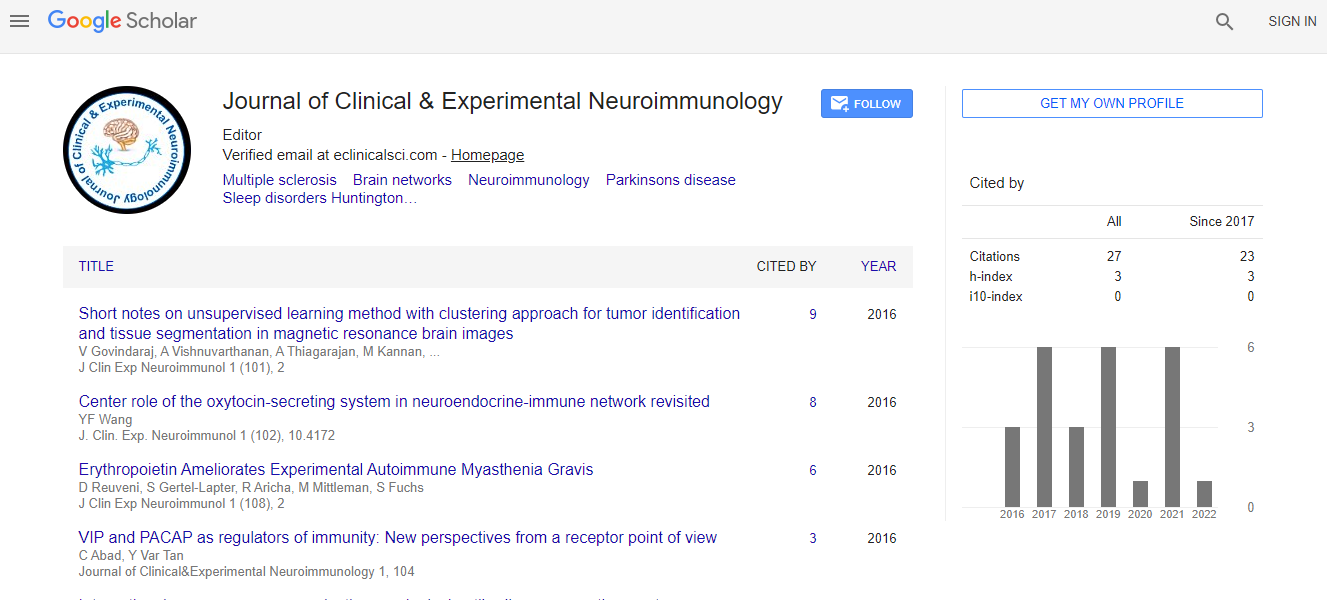Review Article
Antibodies to a Brain-Type Creatine Kinase: Biomarker of Cancer-Related Paraneoplastic Neurological Syndromes
Syuichi Tetsuka*
Department of Neurology, Hospital of International University of Health and Welfare, Japan
- *Corresponding Author:
- Syuichi Tetsuka
Department of Obstetrics & Gynecology
Hospital of International University of Health and Welfare
537-3, Iguchi,Nasushiobara
Tochigi, 329-2763
Japan
Tel: +81-287-37-2221
Fax: +81-287-39-3001
E-mail: syuichi@jichi.ac.jp
Received date: May 07, 2016; Accepted date: July 05, 2016; Published date: July 11, 2016
Citation: Tetsuka (2016) Antibodies to a Brain-Type Creatine Kinase: Biomarker of Cancer-Related Paraneoplastic Neurological Syndromes. J Clin Exp Neuroimmunol 1:106. doi:10.4172/jceni.1000106
Copyright: © 2016 Tetsuka S. This is an open-access article distributed under the terms of the Creative Commons Attribution License, which permits unrestricted use, distribution, and reproduction in any medium, provided the original author and source are credited.
Abstract
The primary pathological mechanism for paraneoplastic neurological syndromes is believed to be a form of onconeural immunity where the cancer causes a cross-immune reaction with the neurons. In a previous study, using a proteomic approach, we detected an anti-brain-type creatine kinase antibody that was associated with paraneoplastic cerebellar degeneration. Using immunohistochemistry, we showed that this antibody reacted with both mouse and human cerebellar neurons, as well as bladder cancer cells, small cell lung cancer cells, and Hodgkin’s lymphoma tissues. In the current study, this antibody was detected in sera from two paraneoplastic cerebellar degeneration patients with small cell lung cancer and one lymphoma patient in whom the sensory-motor neuropathy manifested as paraneoplastic neurological syndrome. In total, we detected five patients with paraneoplastic neurological syndrome. In the previous studies, as far as we could find, five out of six paraneoplastic neurological syndrome patients who tested negative for well-characterized onconeural antibodies were positive for anti-brain-type creatine kinase antibodies. It is high frequency. Taking into account these findings, brain-type creatine kinase may be a good candidate as an onconeural antigen for many cancers. Paraneoplastic neurological syndromes associated with anti-brain-type creatine kinase autoantibody may be the cause of some predominant cancers, which is similar in other well-characterized onconeural antibodies. However, it is necessary to perform further epidemiological analysis to confirm the presence of anti-brain-type creatine kinase antibody before it can be considered as a useful marker of PNS in the clinical setting.

 Spanish
Spanish  Chinese
Chinese  Russian
Russian  German
German  French
French  Japanese
Japanese  Portuguese
Portuguese  Hindi
Hindi 
